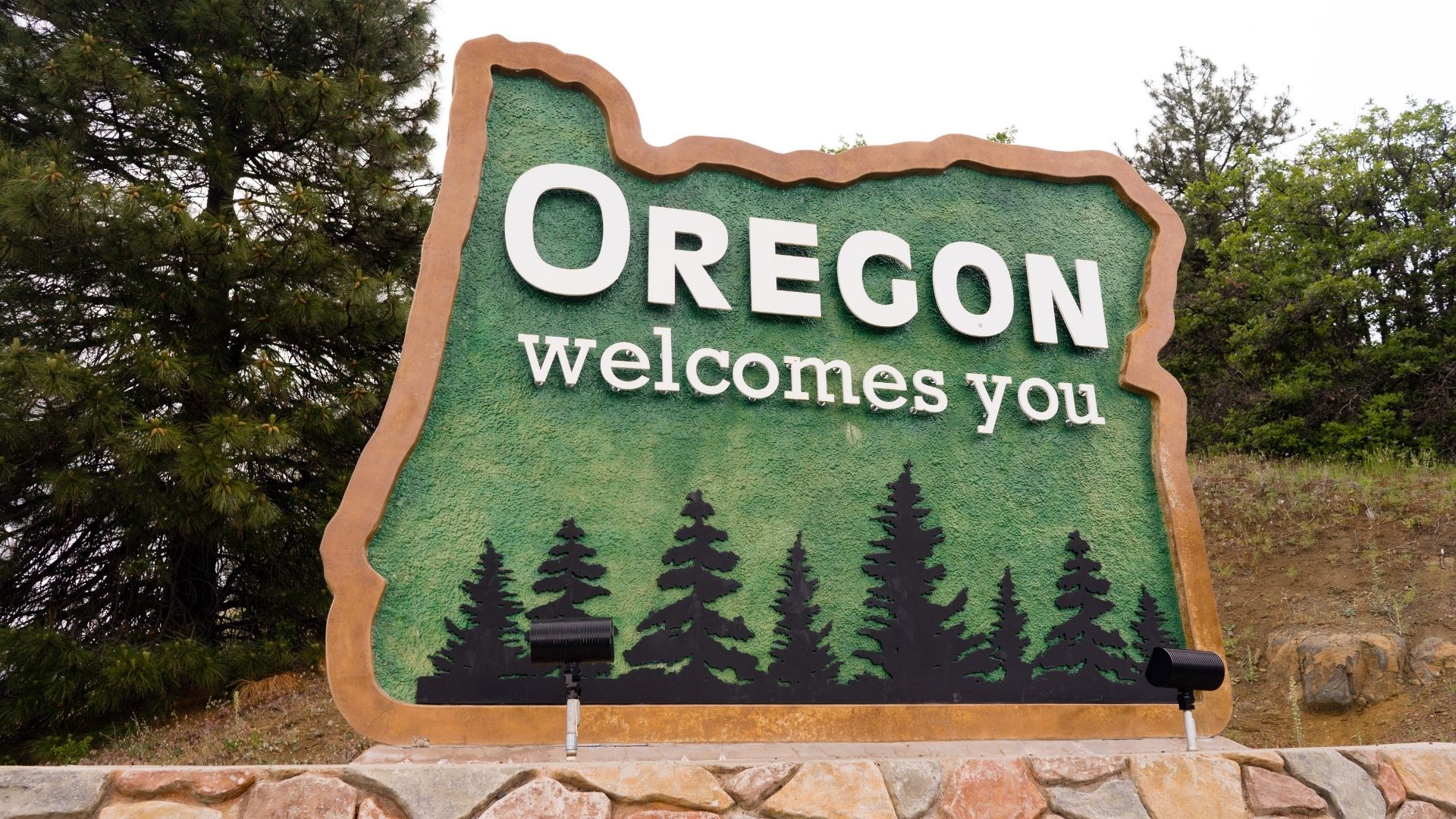
Disclaimer: This article doesn’t constitute legal advice, and landlords should not substitute this information for professional legal advice.
Georgia’s numerous job opportunities, excellent education system, and low cost of living make it one of America’s most livable states. More than 37% of people in Georgia rent, which is more than the national average. When reading this guide, note that it isn’t a substitute for legal advice. Using this guide and performing your research can help you prepare to rent property in Georgia.
A guide to Georgia rental laws and regulations
- Leases, rent, and fees
- Security deposits
- Notices and entry
- Utilities
- Pet laws
- Eviction
- Business licenses
- Disclosures
- Court info
- Resources
- FAQs
Leases, rent, and fees in Georgia
Rental agreements lasting more than a year must be in writing. Oral agreements are acceptable and enforceable for rental agreements of less than a year. If you do have a written rental agreement, it must include:
- Your name
- Your address
- Description of your rental property
While there are no other requirements, you might want to include:
- Length of your agreement
- Cost of rent and other fees
- Utility arrangements
- Security deposit amounts
- Property use and occupancy (including subleasing)
- Arrangement for landlord access
- Maintenance and repairs
- Pet agreements
Adjusting the rent
You cannot increase the rent within the lease period. However, you can increase rent at the end of the month for month-to-month renters and at any time for renters without a lease. According to § 44-7-19 of the Georgia Code, there is no limit on the value of rent increases. There is no Georgia rent increase notice statute either.
Late fees
You can charge late fees when your renters don’t pay their rent on time. This fee should recoup any losses you incur rather than punish the renter. As such, this predetermined amount should be a reasonable estimate of what the late rent will cost you. Grace periods don’t apply in Georgia, so you can charge the late fee as soon as the rent is past due.
Additional fees
If your renter pays with a bad check, you can charge them a fee up to $30 or 5% of the check amount, whichever is greater, along with any fees your bank imposes, under § 13-6-15 of the Georgia code.
Security deposits and deposit management in Georgia
The state of Georgia doesn’t have a set security deposit amount, so you can charge whatever you believe offsets your rental risk. Most landlords in Georgia collect one month’s rent at the start of a new lease.
You can use the security deposit to recover eligible losses caused by your renter’s tenancy. Valid reasons to keep a security deposit include:
- The renter fails to pay rent on time
- The renter incurs late fees
- The renter abandons or damages the property
- The renter violates the lease
According to § 44-7-33 of the Georgia Code, you must go through a list of property damage with your renter before collecting a security deposit. This list should be comprehensive, noting the location and nature of damage in every room. You and your renter should sign and date the list to confirm you agree it is complete. You’ll each get a copy of this list for your records. You can refer to it if there’s any damage when your renter leaves beyond typical wear and tear.
Holding the security deposit
According to § 44-7-31 of the Georgia Code, you’ll usually have two options for holding the security deposit: depositing it in an escrow account or acquiring a surety bond. If you use an escrow account, you must only use it for security deposits. Your escrow account should also be in Georgia. Tell your renter the name and address of your financial institution for their records.
Alternatively, you can post a surety bond with the clerk of the Superior Court in your property’s county. Your bond must equal the number of your total security bonds or $50,000, whichever amount is less.
These rules don’t apply to small landlords. Small landlords are landlords with fewer than 10 rental properties who don’t use third-party property managers. If you qualify under this exemption, you can hold the security deposit any way you like.
Retaining part of the deposit
Landlords with more than 10 units overseen by a third-party property manager are subject to Georgia’s Safety Deposit Law.
Under this Georgia law, landlords must inspect their properties for damages within three days of their renter’s departure. If they find physical damage, they should send an itemized list of damages and estimated repair costs to the tenant. If landlords do not inspect the property and provide the itemized list within these three days, they cannot use the security deposit for repairs.
Former renters can return to the property after receiving this notice to check the claims within five days of moving out. If they don’t believe they caused the damage or think it falls under typical wear and tear, they must give the landlord a written statement declaring their position. If both parties can’t work it out, the renter can file a small claims case for the withheld deposit.
Small landlords aren’t subject to the same rule. However, this procedure is good practice regardless of the size of your property portfolio.
Returning security deposits
According to § 44-7-34 of the Georgia Code, renters should receive all or part of their security deposits within 30 days of moving out.
Notices of entry regulations
You need a valid reason to enter your occupied rental property, according to the Georgia Renter-Landlord Handbook. Valid reasons include performing maintenance tasks and repairs, showing your property to potential buyers and new tenants, and taking care of emergencies.
You should write an email or letter stating when you want to enter the property and your visit’s purpose. No Georgia rental laws exist that state the amount of required notice, but most landlords provide at least 24 hours’ notice. You do not need to give any notice at all when tending to emergencies.
Georgia utility laws
It’s up to you whether you want to pay for some or all of your renter’s utilities. Specify who pays in your rental agreement.
You cannot discontinue a renter’s heat, water, or electricity for any reason, according to § 44-7-14.1 of the property act.
Georgia pet laws
It’s up to you whether you will allow pets in your rental properties. If you allow pets, you can specify what type of pets you allow and any weight or size restrictions. Include all of this information in your rental agreement.
Under § 44-7-30 of the Georgia Code, you can charge pet deposits and additional fees to offset the risks associated with pets. You might charge a single refundable deposit, an ongoing pet rental charge, a cleaning fee when the renter vacates the property or all of these fees. Remember to state all pet charges in the rental agreement.
Eviction laws in Georgia
You can evict renters in Georgia for four reasons: not paying rent, intentionally damaging your property, breaking their lease, or holding over after the lease expires.
According to § 44-7-50 of the Georgia Code, landlords start the eviction process by issuing a demand for possession. This demand tells renters they must pay rent by a specific period or vacate the property. Renters evicted for reasons other than unpaid rent must simply vacate the property. While written demands aren’t essential, they leave a paper trail if disputes arise.
If the deadline passes without renter action, landlords can file a dispossessory proceeding in a state or magistrate court. Renters must respond to the suit within seven days. If they don’t, the case goes to trial.
On the eighth day, landlords can apply for a court order called a Writ of Possession. They give this to the Marshal’s Department to pass on to the renter. Landlords then hire an eviction company to move the renter’s property out. The marshal schedules an eviction date with the landlord.
On eviction day, the marshal grants access to the landlord and eviction company. Once they do, the eviction company can remove the renter’s items. The landlord regains possession of the property from that point.
Terminating lease agreements
You can terminate a lease agreement for any reason. Under § 44-7-7 of the Georgia Code, you should give renters with leases with no specified end date or month-to-month leases 60 days’ notice. There is no statute for notice for renters with leases with fixed end dates or week-to-week leases.
You can immediately terminate the lease without notice if your renters don’t pay rent. Choosing termination over eviction means they don’t get the opportunity to settle the debt and stay. The state doesn’t specify how much notice renters get to vacate properties after lease termination.
Georgia business licenses
There is no Georgia landlord-tenant law stating local landlords need rental licenses. However, you may need a license in some cities or counties. Check with your local authorities to learn the rules in your part of the state.
Required disclosures
Lead paint
Under federal law, you must tell prospective renters if your property was built before 1978 and has lead-based paint or lead-based paint hazards before they sign a lease or rental agreement. You must also provide them with a copy of the pamphlet “Protect Your Family From Lead in Your Home.”
Flood damage
Under state law, you must tell potential renters if your property has suffered flood damage three or more times within the last five years. You don’t need to volunteer information about a death on the property or a past renter with a disease. However, you must answer truthfully if renters ask about these matters.
Georgia court information
If a renter is moving out and owes you rent, you can file a “distress for rent” suit with the small claims court. This action puts a lien on the renter’s property. If they don’t pay the rent before moving you, you can sell their property to recover the damages.
Once you file the action, the court grants you a summons to serve your renter. They have seven days to pay their past-due rent and the cost of filing the distress action or answer the summons. If they do not respond, the court will issue a distress warrant.
Renters owing rent cannot gain possession of their property during a distress-for-rent trial. If the trial finds in your favor, you have the right to the tenant’s property. A marshal, sheriff, or deputy takes possession of the property and sells it on your behalf. You’ll receive proceeds from the property sale to cover the unpaid rent.
Renters can sue landlords in Magistrate Court if they feel some or all of their security deposit was unlawfully retained. The court will award a maximum of $15,000 in damages. It’s also within Georgia tenant rights to sue for wrongful eviction. There is no upper limit for damages in these cases.
Additional resources for Georgia landlords
For more information about rental laws in Georgia, consult these helpful links:
- U.S. Department of Housing Georgia
- Georgia Code Chapter 7: Landlord-Tenant
- Georgia Community Affairs Landlord-Tenant Handbook
- Georgia Landlord’s Guide to Section 8 Housing
You should be aware of all of the guidelines and regulations you need to follow when renting a property in Georgia. In addition to state laws, get to know your local county and city laws to protect yourself and your renter.
FAQs about rental laws in Georgia
Does Georgia require written rental agreements?
Yes. For any rental agreement lasting more than a year a written agreement is required.
Can a landlord charge late fees in Georgia?
Yes. Also, grace periods do not apply in Georgia, so late fees can be assessed on the first day.
Does Georgia require a security deposit?
No. There is no set security deposit amount, so landlords can set it at any amount they want.
Does Georgia have pet laws for renters?
No. It’s up to the landlord whether they want to allow pets and include fees or policies for pets.
Final notes
Make sure you thoroughly examine your city’s and state’s ordinances and regulations, and obtain legal assistance from an expert.
When you want to streamline property rentals, Zumper can help. Learn how you can publish property listings, screen potential renters, create leases and collect payments with Zumper.



